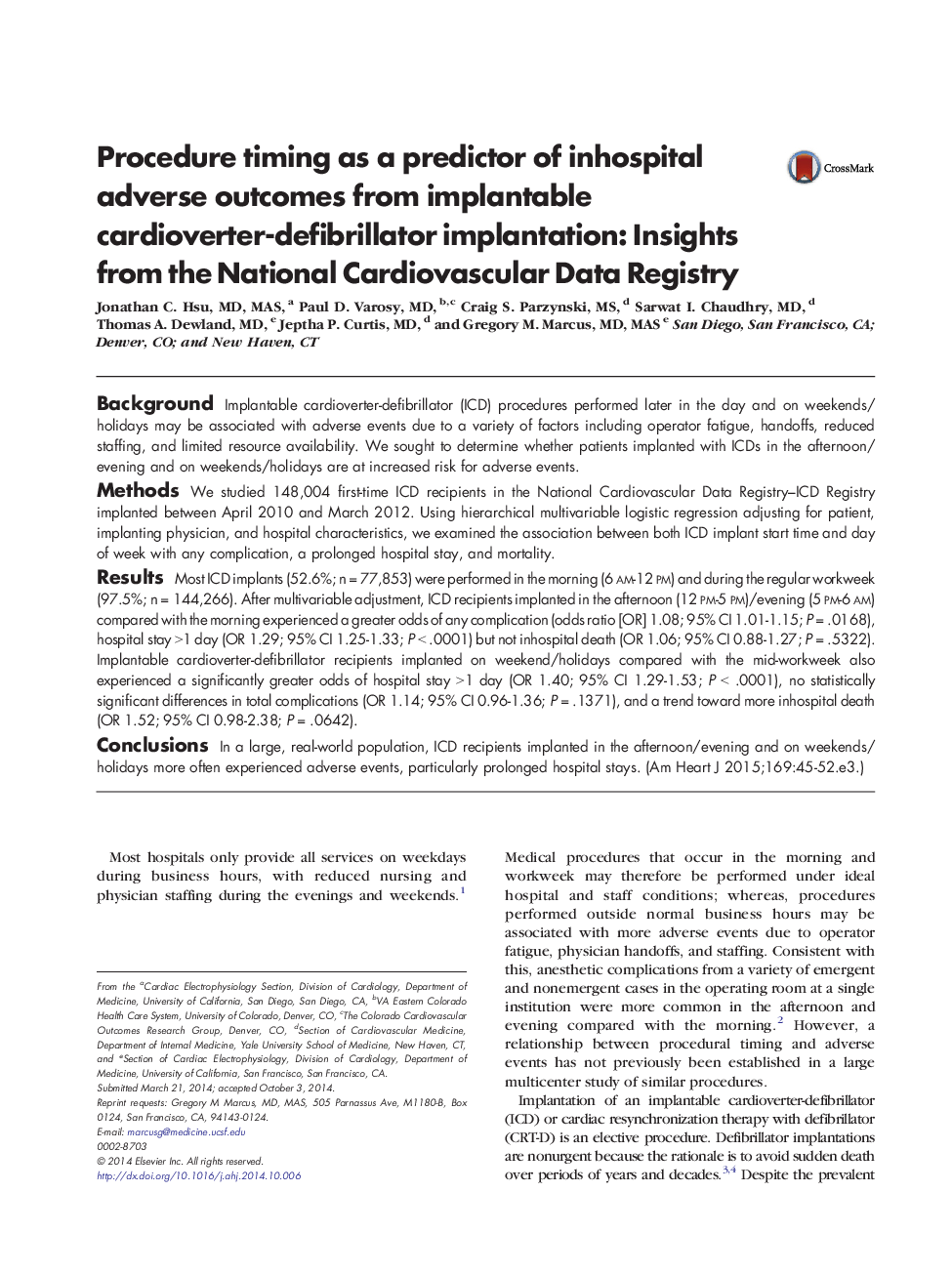| کد مقاله | کد نشریه | سال انتشار | مقاله انگلیسی | نسخه تمام متن |
|---|---|---|---|---|
| 5927709 | 1167738 | 2015 | 11 صفحه PDF | دانلود رایگان |
BackgroundImplantable cardioverter-defibrillator (ICD) procedures performed later in the day and on weekends/holidays may be associated with adverse events due to a variety of factors including operator fatigue, handoffs, reduced staffing, and limited resource availability. We sought to determine whether patients implanted with ICDs in the afternoon/evening and on weekends/holidays are at increased risk for adverse events.MethodsWe studied 148,004 first-time ICD recipients in the National Cardiovascular Data Registry-ICD Registry implanted between April 2010 and March 2012. Using hierarchical multivariable logistic regression adjusting for patient, implanting physician, and hospital characteristics, we examined the association between both ICD implant start time and day of week with any complication, a prolonged hospital stay, and mortality.ResultsMost ICD implants (52.6%; n = 77,853) were performed in the morning (6 am-12 pm) and during the regular workweek (97.5%; n = 144,266). After multivariable adjustment, ICD recipients implanted in the afternoon (12 pm-5 pm)/evening (5 pm-6 am) compared with the morning experienced a greater odds of any complication (odds ratio [OR] 1.08; 95% CI 1.01-1.15; P = .0168), hospital stay >1 day (OR 1.29; 95% CI 1.25-1.33; P < .0001) but not inhospital death (OR 1.06; 95% CI 0.88-1.27; P = .5322). Implantable cardioverter-defibrillator recipients implanted on weekend/holidays compared with the mid-workweek also experienced a significantly greater odds of hospital stay >1 day (OR 1.40; 95% CI 1.29-1.53; P < .0001), no statistically significant differences in total complications (OR 1.14; 95% CI 0.96-1.36; P = .1371), and a trend toward more inhospital death (OR 1.52; 95% CI 0.98-2.38; P = .0642).ConclusionsIn a large, real-world population, ICD recipients implanted in the afternoon/evening and on weekends/holidays more often experienced adverse events, particularly prolonged hospital stays.
Journal: American Heart Journal - Volume 169, Issue 1, January 2015, Pages 45-52.e3
